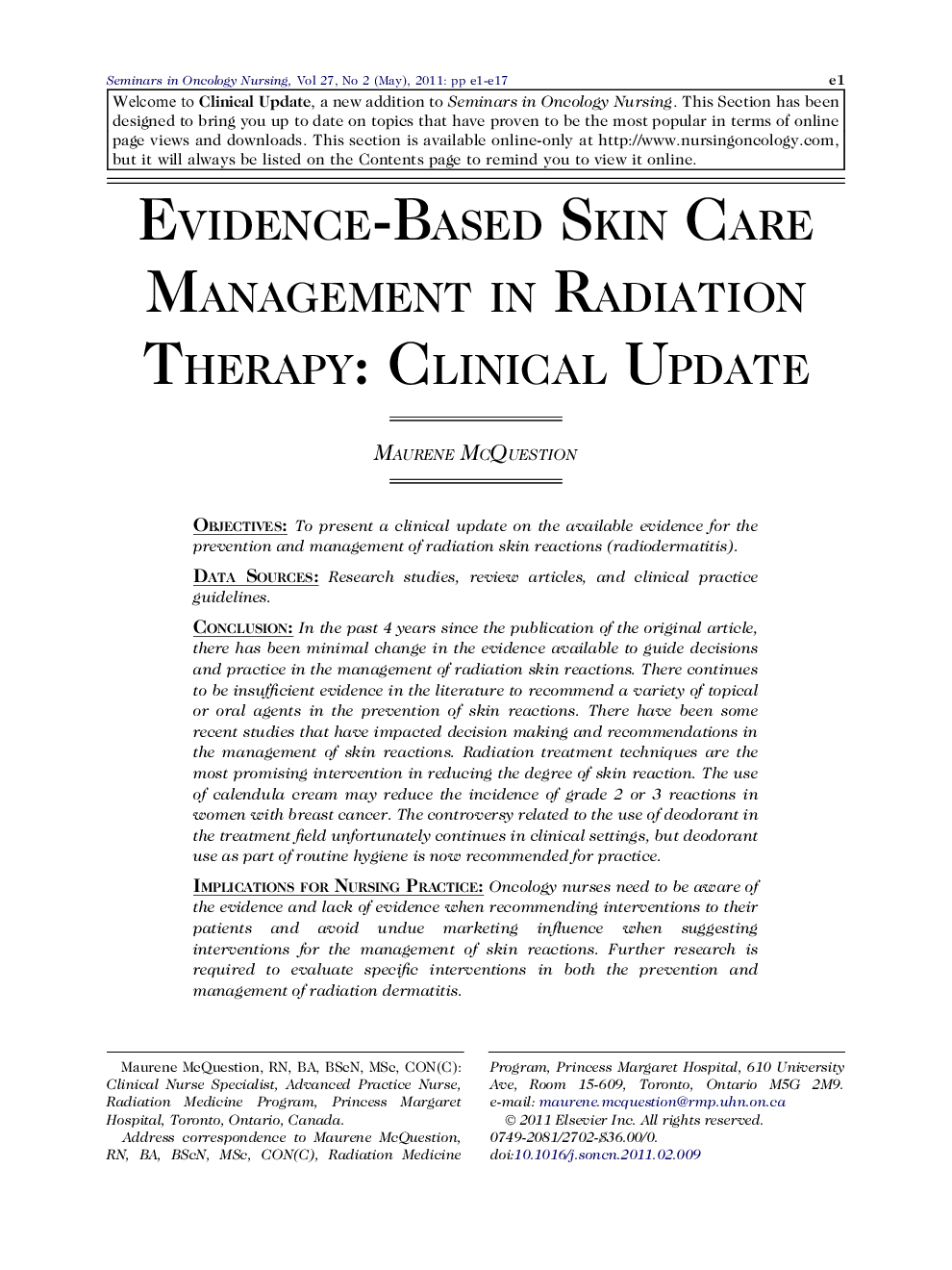| Article ID | Journal | Published Year | Pages | File Type |
|---|---|---|---|---|
| 2676426 | Seminars in Oncology Nursing | 2011 | 17 Pages |
ObjectivesTo present a clinical update on the available evidence for the prevention and management of radiation skin reactions (radiodermatitis).Data SourcesResearch studies, review articles, and clinical practice guidelines.ConclusionIn the past 4 years since the publication of the original article, there has been minimal change in the evidence available to guide decisions and practice in the management of radiation skin reactions. There continues to be insufficient evidence in the literature to recommend a variety of topical or oral agents in the prevention of skin reactions. There have been some recent studies that have impacted decision making and recommendations in the management of skin reactions. Radiation treatment techniques are the most promising intervention in reducing the degree of skin reaction. The use of calendula cream may reduce the incidence of grade 2 or 3 reactions in women with breast cancer. The controversy related to the use of deodorant in the treatment field unfortunately continues in clinical settings, but deodorant use as part of routine hygiene is now recommended for practice.Implications for Nursing PracticeOncology nurses need to be aware of the evidence and lack of evidence when recommending interventions to their patients and avoid undue marketing influence when suggesting interventions for the management of skin reactions. Further research is required to evaluate specific interventions in both the prevention and management of radiation dermatitis.
